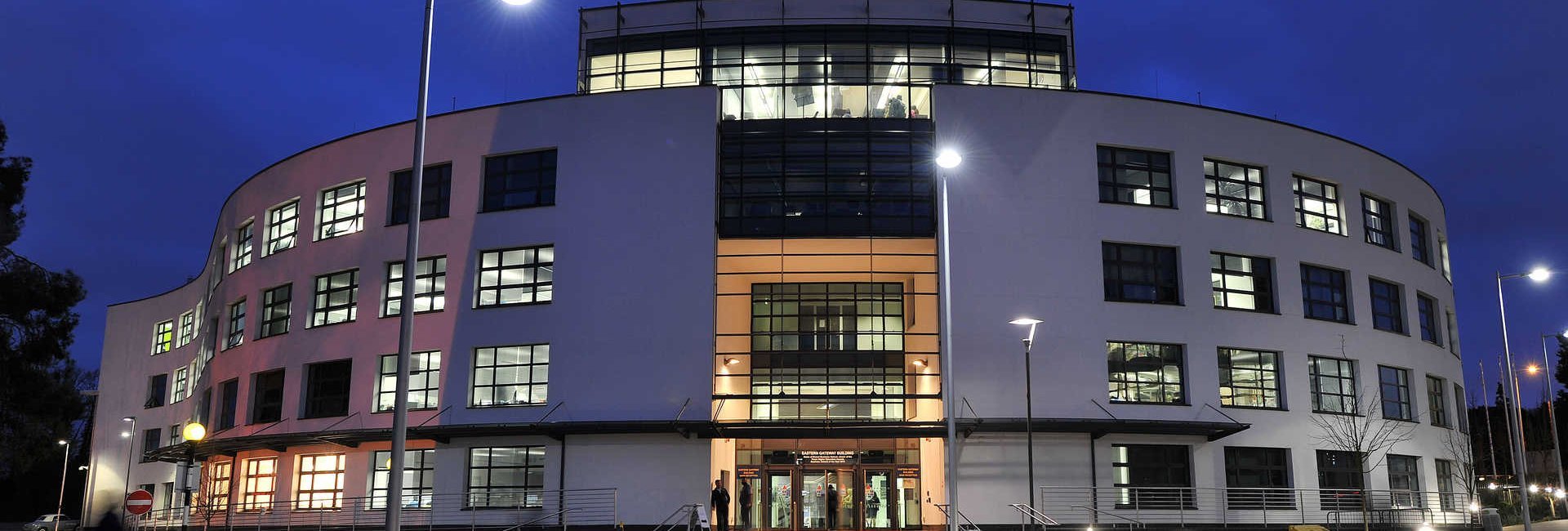Brunel University of London - on-campus Open Day (undergraduate and postgraduate)
28 Jun 2025, 09:00
Uxbridge, Middlesex

Our Aerospace Engineering BEng degree is an exciting, hands-on specialist course that has been developed to equip you with the knowledge and understanding to meet the real world needs of the global aerospace industry.
You will be introduced to fundamental engineering subjects such as structures, materials, fluids, and maths, and gain skills in technical drawing. You’ll then learn about the principles of aircraft design and progress to specialist subjects such as propulsion systems, and aerospace structures.
You’ll have access to a range of technical facilities including our aerospace/aviation laboratory, full-motion engineering flight simulator, supersonic and subsonic wind tunnels, materials and structure testing laboratory, and 3D printing in the digital fabrication workshop. Industry standard specialist software for aircraft design is available for you to use 24 hours a day in high-performance computing clusters.
During your time at Brunel, you will benefit from guest lectures delivered by industry professionals who present a valuable insight into current, challenging topics in the field of aerospace. There are also planned visits to engineering and manufacturing companies where you’ll see first-hand the latest breakthroughs in development and technology for future aerospace systems. In addition, you have the advantage of Brunel’s close location to London’s Heathrow Airport for site visits as well as project opportunities, and placement and employment options.
Our BEng aerospace engineering course is accredited by both the Royal Aeronautical Society (RAeS) and the Institution of Mechanical Engineers (IMechE). These professional bodies ensure that your engineering degree meets the academic requirement to qualify as a professional engineer. This accredited BEng degree in aerospace engineering can be studied full-time over three years, or four years with a placement year. The BEng degree meets the educational requirement to become an Incorporated Engineer (IEng). You may wish to transfer to the MEng route of study at the end of your second year, subject to meeting the progression requirement. The MEng degree fully meets the educational requirement to become a Chartered Engineer (CEng) and involves a further year of academic study.
We encourage the placement year option. This time in industry helps you to further prepare for the world of work and you’ll have a year’s worth of invaluable professional experience when you graduate. If you decide to go on an engineering placement year, you will have the opportunity to work in the aerospace engineering sector.
As an extracurricular activity, there is the opportunity to be part of a student-led initiative involving the design and build of an unmanned aircraft vehicle and participating in the IMechE industry-sponsored UAS Challenge (Unmanned Aircraft Systems Challenge).
Typical modules
Flight Mechanics & Aircraft Design
Aircraft Propulsion
Mechatronics and Control Engineering
For a full list of modules and their descriptions please visit our website https://www.brunel.ac.uk/study/undergraduate/Aerospace-Engineering-BEng

Learn what it's like to study at Brunel University London. From key stats to campus highlights, open days, and more - find everything you need to know here.
The following entry points are available for this course:
Discover what it's like to study Aerospace Engineering with Placement at Brunel University London: insights on the course, making friends, personal statement tips, uni prep, and recommended books, podcasts, and videos.
| Test | Grade | Additional details |
|---|---|---|
| IELTS (Academic) | 6 | with no less than 5.5 in each subsection |
| Institution's Own Test | with no less than 55% in each subsection | |
| TOEFL (iBT) | 77 | with a minimum of: Reading - 18 Listening - 17 Speaking - 20 Writing - 17 |
| PTE Academic | 59 | with a minimum of 59 in all subscores |
Brunel University London - English Language Requirements https://www.brunel.ac.uk/international/English-Language-Requirements
Brunel University London is committed to raising the aspiration and improving equality of opportunity of our applicants and students. We adopt a contextualised admissions approach when reviewing applications, which include accepting lower grades or making lower offers to applicants from disadvantaged and under-represented backgrounds. From 2024 entry, the offer will be personalised based on a holistic view of the application, including the individual applicant’s personal and educational journey.
This section shows the range of grades students were previously accepted with - learn more. It is designed to support your research but does not guarantee whether you will or won't get a place. Admissions teams consider various factors, including interviews, subject requirements, and entrance tests. Check all course entry requirements for eligibility.
Students aged 17/18 who applied to this course were offered a place.
See how students with your grades have been accepted onto this course in the past.
Operated by the Office for Students
The number of student respondents and response rates can be important in interpreting the data – it is important to note your experience may be different from theirs. This data will be based on the subject area rather than the specific course. Read more about this data on the Discover Uni website.
| Location | Fee | Year |
|---|---|---|
| Republic of Ireland | £9250* | Year 1 |
| EU | £23615* | Year 1 |
| England | £9250* | Year 1 |
| Northern Ireland | £9250* | Year 1 |
| Scotland | £9250* | Year 1 |
| Wales | £9250* | Year 1 |
| Channel Islands | £9250* | Year 1 |
| International | £23615* | Year 1 |
* This is a provisional fee and subject to change.
Tuition fee status depends on a number of criteria and varies according to where in the UK you will study. For further guidance on the criteria for home or overseas tuition fees, please refer to the UKCISA website.
EU nationals may be eligible for a discount on their fees - please see our website at https://www.brunel.ac.uk/scholarships/page?id=c8112b36-1680-4492-b55c-f4e9932ae2e8
Kingston Lane
Uxbridge
UB8 3PH
Visit our website Visit our course page
Email:admissions@brunel.ac.uk
Phone:+44 (0)1895 265 265
Email:enquiries@brunel.ac.uk
Phone:+44 (0)1895 265 599